[soundtrack : Mannish Boy - Muddy Waters ]
***
After attending furniture-making school for two years it was time for me to find an apprenticeship. Then, as now, there were too few places to go around. I was scheduled with an interview at one of the hospitals in town. Many of the larger, public institutions that had an amount of real estate still kept an in-house workshop as part of their technical / maintenance department.
Being punctual and finding the right building I was shown up a flight of stairs and told to go straight through. Knock-knock. Behind the door I found a surprising number of paunchy men seated around a long table — the numerous heads of a multitude of departments busying themselves with the maintenance of the sprawling hospital complex's many buildings.
- Walter ? Welcome. Please, have a seat.
- Thank you.
- Sooo ... you've been to University, have you ?
- Guilty.
- Aaand why do you want to become a woodworker ?
- Well ... I don't want to be an office worker, and I've always
- !Some people would find you scary!
- Eh?! ... I ... I ... don't think I've frightened anyone yet who didn't deserve it.
I notice one of the old gits grinning and nodding, the others are stonily unamused.
- Well, yes ... I think that is all we need to hear for now. Thank you for your time, you'll hear from us.
I left bewildered as to what had actually happened.
Later it dawned on me that the meeting had just been a box-ticking exercise and that the congregation I'd just informed of the undesirability of being an office worker had probably spent most of their working lives struggling to advance from lowly shop-floor craftsman up through the ranks to better-remunerated management and head of office. Reading the room was never my strong suit … or rather; it’s a skill I’ve always disdained. I’m not here to please you; we can leave that to the dancing monkeys.
I no longer remember how it came about; a sympathetic soul maybe wispered in someone's ear that “he's a good boy and a crafty woodworker” ... anyhow I started working at 'Gustav Gjelstads Eftf. Snekkerverksted' (translated: 'Gustav Gjelstad's Successor Woodshop'). And so I never completed my formal education and never got my Guild Diploma. Instead I was paid full wages and got to work with some of the best boys in the trade.
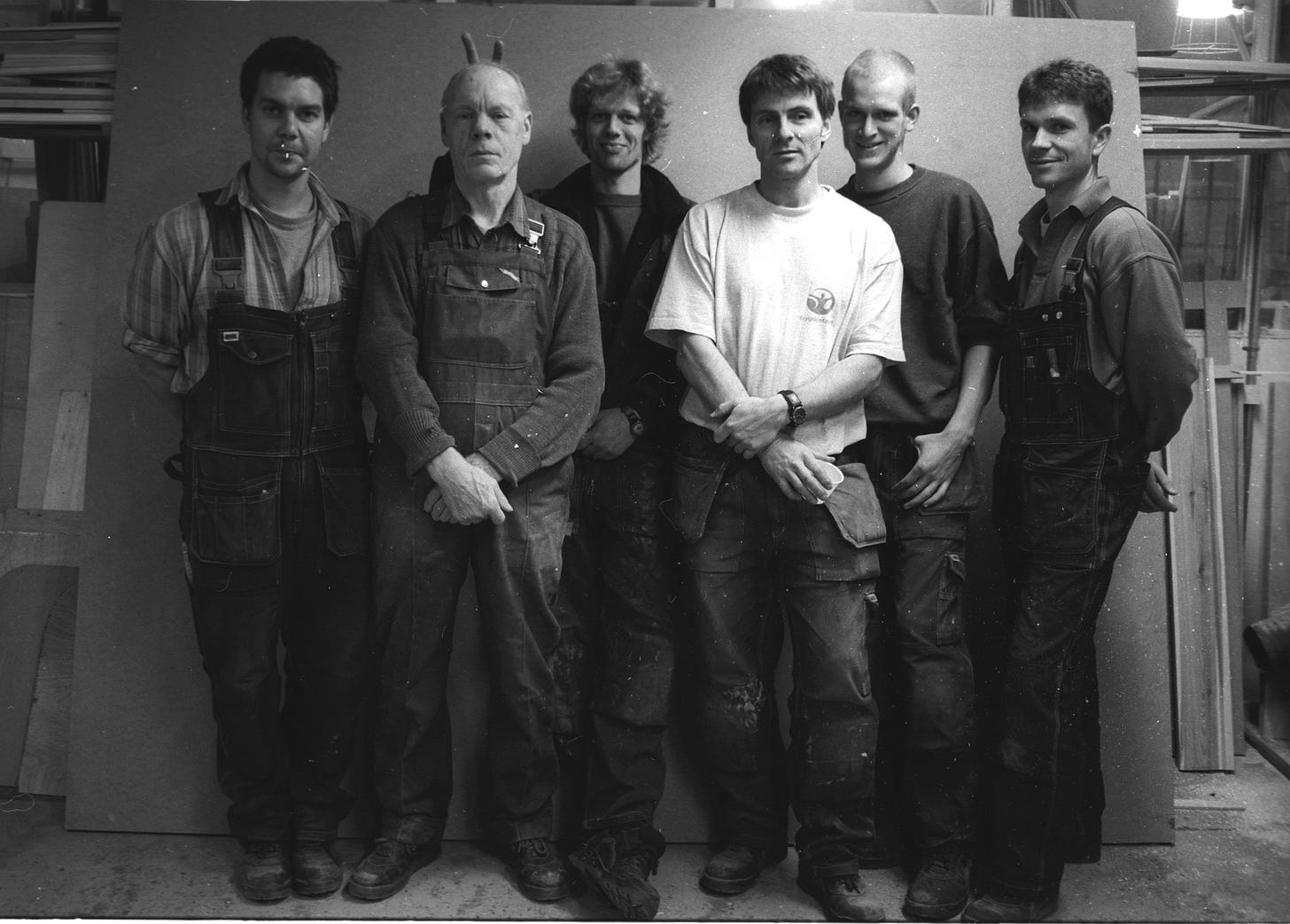
Oh, and my classmate Svein got the apprenticeship at the hospital. He said the most woodworking he did at that place was hanging some shelves occasionally, but that the nurses were more than friendly.
I’ve later learned that the council body responsible for organizing the allotment of apprenticeships were averse, on principle, to taking on candidates who had already completed their secondary education, rather preferring the young’uns who’d gone straight ahead. Fair enough. I understand their reasoning; why furnish me with yet another (scarce) secondary education, free of charge? And, furthermore … how to put it? … I’ve come to understand that many working class guys feel uncomfortable in company with ‘the quality’ (for lack of a better term). Inferiority is seldom a desirable feeling (although I suspect Leopold von Sacher-Masoch would disagree, but he was a pervert. Don’t heed perverts.) The ‘lower orders’ are seemingly fine with you being in charge, though; relieved of the responsibility of making decisions, doing the necessary calculations, organizing the work and being financially accountable, which begs the uncomfortable question: Do you really believe in equality? Or do you just like the sounds your mouth makes?
Still … after 30 years I’m the one still standing by my bench, insisting on doing the work hardly anyone remembers how to do. Stupid, obsessive or obstinate?
'Gjelstad' was one of the oldest shops in town, and well reputed. It was originally housed just east of the river, in Nedre Gate 3 (‘Lower Street 3’) — in a wooden building that burned down.
When told about this I asked if it was the ubiquitous wood-burning stove they used to heat the shop and the glue-pot that had started the fire. It has always seemed insanely risky to me to have an iron stove amidst all the sawdust and shavings.
- Weren't you afraid that an ember would crackle and jump out of the fire and set the whole shop alight ?
- Naaaw ... we'd just kick some more sawdust over it. Sawdust doesn't really burn that well, you see.
I was always very dubious about this, but was told that when the fire-inspector and the shop foreman were walking through the smoking ruins of the burned-down shop the inspector says something like
- Well … I guess it was that heap of sawdust you lot always sweep up to the stove that set this off, don't you reckon?
- No way, Inspector! Look here!
says the foreman and kicks open the blackened heap in front of the oven to reveal fresh sawdust under a charred layer. The only thing that had not burned down in that conflagration was the heap of sawdust by the stove. They got their insurance money. Or at least that's what they told me.
When I worked there they had long since moved across the river (but only just across the river) to Maridalsveien 3, to a modern concrete building that had been part of a soft-drinks factory (NORA Fabrikker). The new workshop was housed in what had been the old bottle crate workshop (behind the row of windows in the centre of the picture above).
We did all manner of work; furniture (new and restoration), windows, doors and street-doors (latin: porta), shop-fronts & -interiors, remodelling offices ...
Still, the business was running out of steam and just coasting along on a good reputation. The boss/owner was a jovial old boy from one of those mountain provinces where they speak a quaint dialect that clients tend to find endearing. That was his shtick; being the honest, likable country lad — and customers lapped it up. I know for a fact that he used to be an efficient and good woodworker, but a businessman and leader of men he was not. No investment in new tools or machines, no pay rise for the boys year after year, the workshop slowly atrophying ... no driving will behind the enterprise. Dissolution.
The guys left one after one, having no problem finding work in other shops. In the end it was only me and old Arne on the floor and the boss and his second-in-command (a very capable man who did his best to keep the ship afloat) in the office. So: two men working for four and getting the smallest cut for their effort.
It was time to find greener pastures.
***


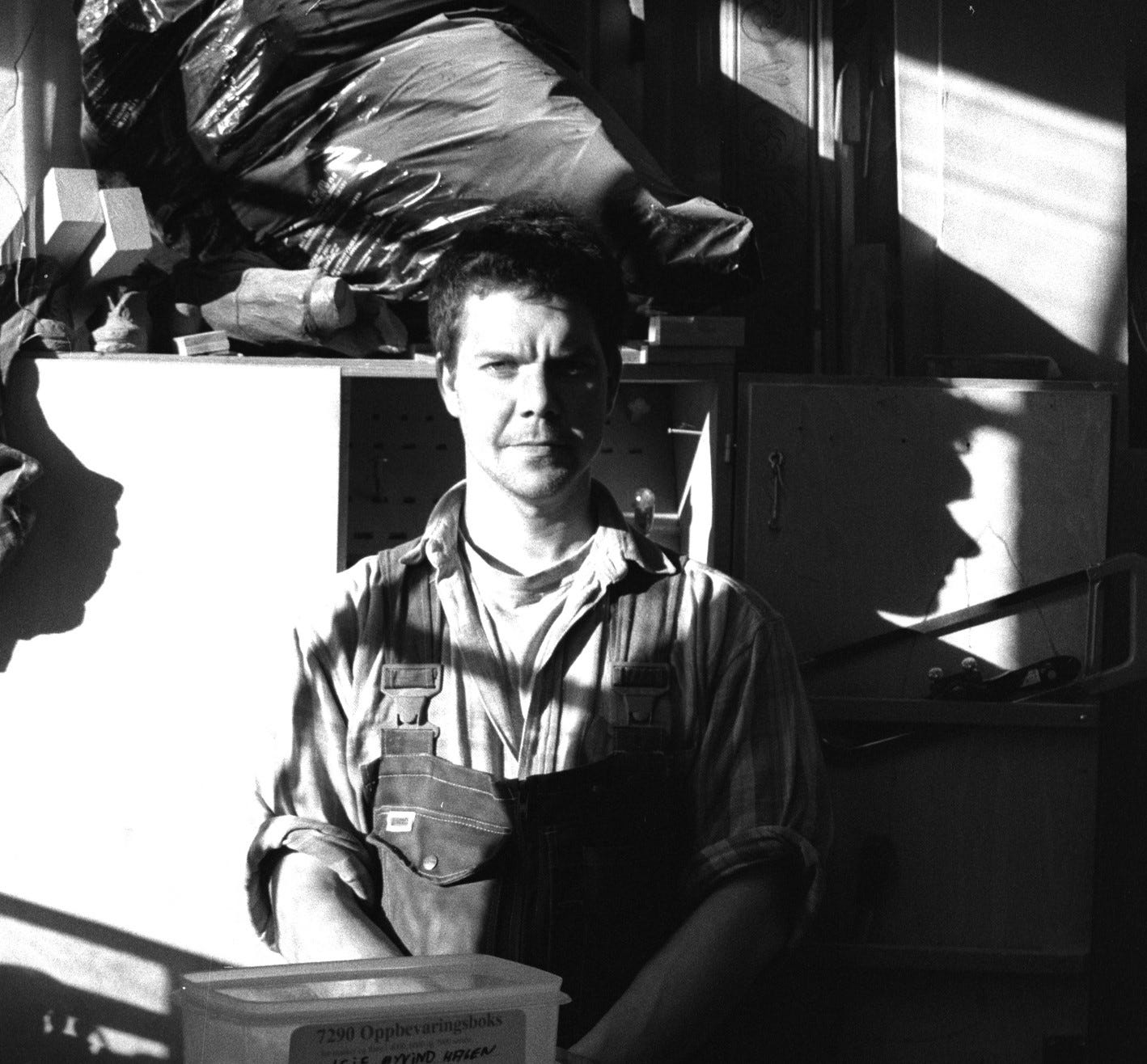
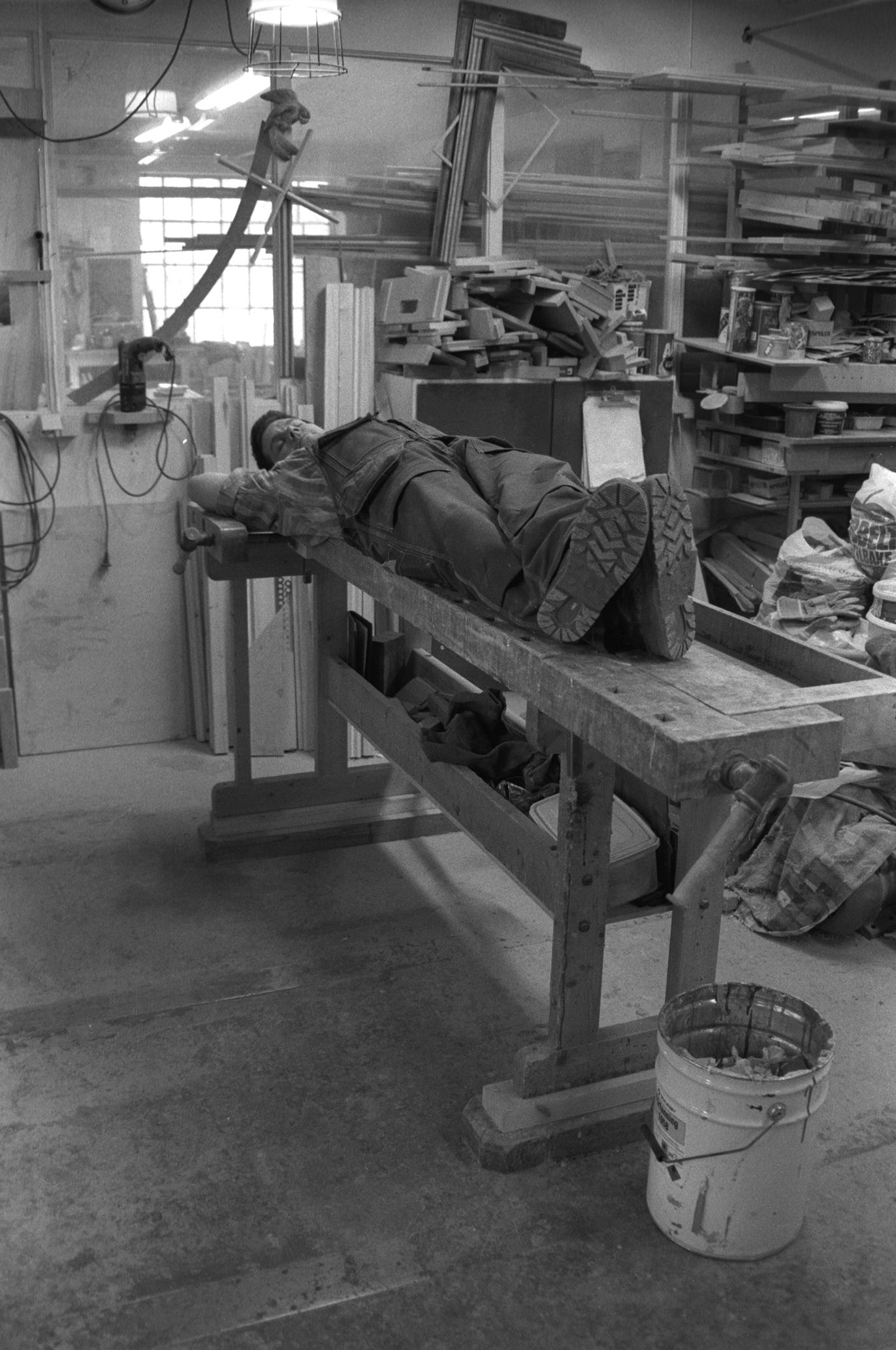
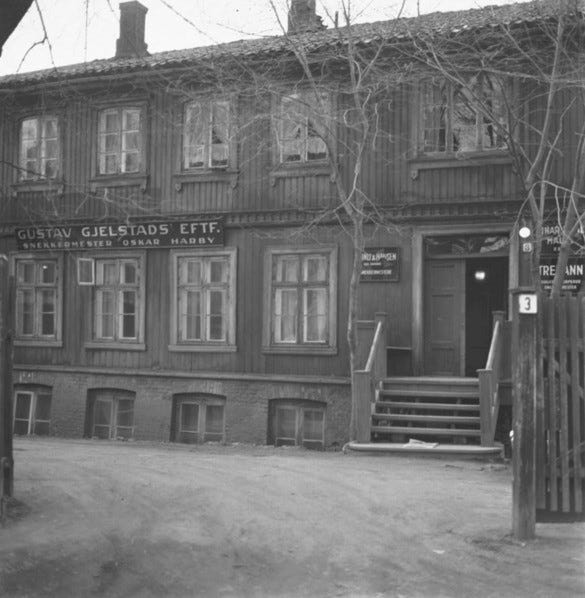
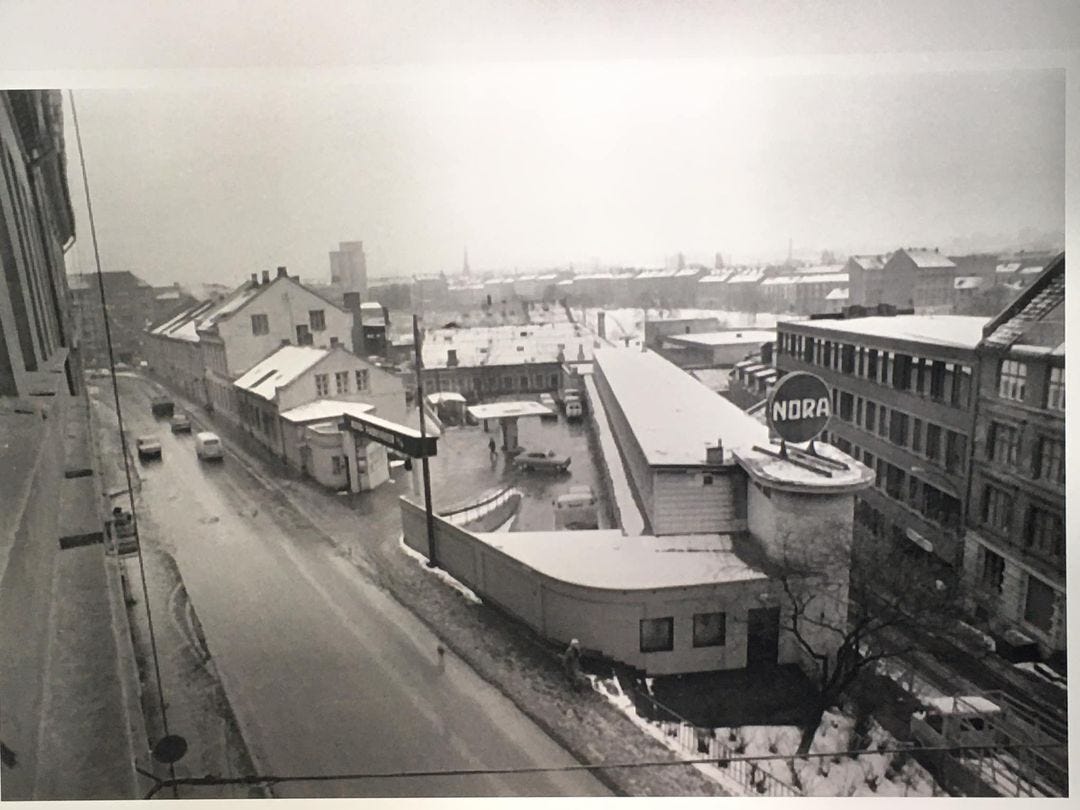
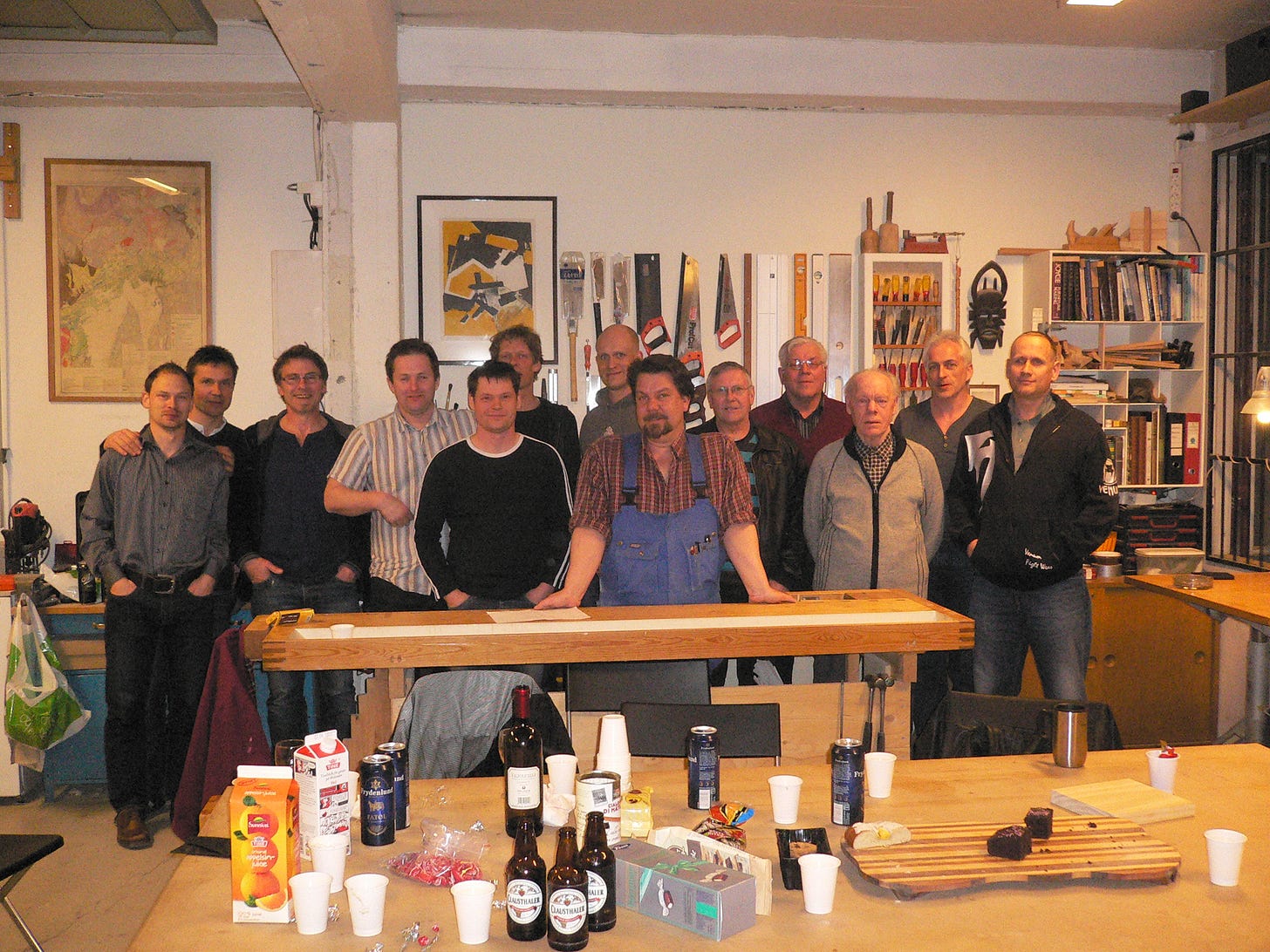
It’s interesting how some things are the same regarless of the trade. Or at least were the same 25-30 years ago. I started some 25 years ago as a telco/UNIX engineer, had the best boss and mentor I never hoped would have and had the best times learning things. I would never forget his words and the end of a piece o paper handwritten with instructions (yes, people could work on computers with pencil and paper 😅) when I had my first solo asignment changing some hardware in a big ass old SUN Microsystems server: “Remember Daniel, it’s just a pile of metal in the end, nobody will die”. Well, in Romanian was a bit more coloufur 😅
Beginnings are always difficult, reminds me of me, not 30 years ago but around 3. Hilsen fra en spansk fagkolega i Akershus